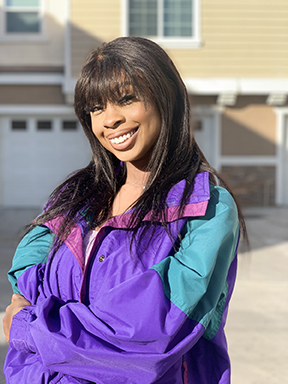Lola: Hello everyone my name is Lola and I have here with me Janet.
Janet: Hey everyone! This is Janet here.
Lola: And today we’re going to be talking about mental health the mental health myth in minority families and how much that affects the kids in those families.
Janet: Yes it’s become such a unfortunate trend how children or just teens are experiencing not being able to fully talk about their mental health or their anxiety just because it’s looked down upon in many different cultures.
Lola: Yeah.
Janet: Don’t you agree?
Lola: Yeah, yeah I definitely agree. Like in my family like when I was dealing with stuff and I was really depressed and, um, I hid that from my parents and then when my mom found out, she got mad at me instead of asking what’s wrong and being considerate and like understanding and trying to be open-minded and help me she was really upset at me and then she’s like “Next time you do this I’m going to tell your dad on you” and then I did it again and then she found out and then they both got really upset at me. And they said like “What do you have to be to depressed about or suicide about? You have family like who loves you and stuff” and like “You’re not struggling or anything,” like that looks like it’s not about that. You know like I remember Robin Williams, he had like people who loved him and stuff like that and he had success but still, you know he was fighting his own demons and I think that’s what like minority parents just don’t understand raised, in like how they were raised that you can still be struggling and fighting your own demons and, despite all success or love around you.
Janet: Absolutely, I think that people just think when you have it all or you have you know the necessities that you have nothing to complain about or be upset but we all go through situations and circumstances that just give us anxiety or make us depressed and what I can say about living in a Hispanic culture. I come from Central American parents and it’s something that you speak about your feelings it’s like you’re looking for attention so “What are you sad about?” “What are you crying about?” “You want a reason to be sad, I’ll give you a reason to cry about.” you know when you’re a kid right and just in other cultures as well it’s just like it sucks that you can’t openly talk to your parents about what’s bothering you or you know what’s making you upset or depressed because to them there’s no such thing as a mental health disorder or anxiety and depression. I think it’s because they were, not grown, or not grown, sorry, they were not taught that way as well to talk openly and freely about their feelings that when it’s our turn is just looked down upon and it sucks because that’s when a suicide attempt, or you just thinking about it happens for many people like you know how the whole controversy about being gay or lesbian I know that I know in Hispanic cultures, that is the most dreadful thing you can do. I have a cousin who he never really told his parents until this day he hasn’t because it’s “oh my God,” he would get you know shunned out of the family, but because of that, he lived a very depressing life as a teen because he wanted to be himself but he couldn’t because you know men in Hispanic cultures are very machistas, they’re “macho men” so you know that would be like the worst thing that can happen so it just sucks to see someone that you love also suffered from it because it is real, it is a real thing.
Lola: Unresolved trauma that happens in Black families and Asian families and Hispanic families and you know, just it’s definitely something that needs to be addressed. So what do you advise to like parents, who are raising these kids?
Janet: I feel that, they should be more opened about it. Just because they weren’t taught or, they weren’t open about it with from their parents of course that doesn’t mean that they can’t give it a try for this generation because it’s something that’s more openly talked about in schools now and I think they should just at least you know have an open ear or just listen without being judgmental or quick to have an answer sometimes you just need to listen and I think that a child needs to know that you will listen without giving them a punishment or without judging them.
Lola: Yes, most definitely. Ok well, that’s all we have for today thank you so much for this Janet.
Janet: Yeah absolutely Lola, anytime.
Lola: And we’ll see you guys next time. Bye.
Janet: Bye.
Transcribed by: Lola Ajetunmobi
Edit by: Lola Ajetunmobi


















